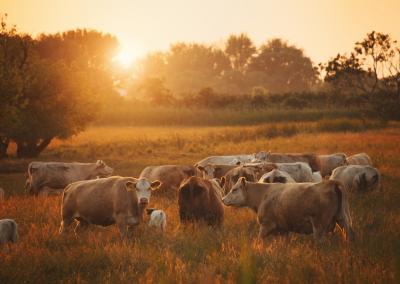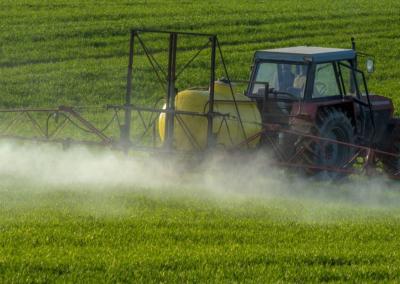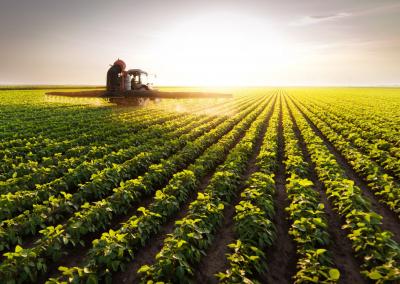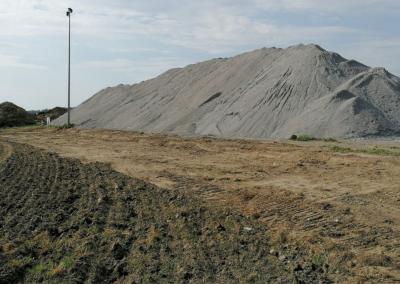First vegetable harvest: less abundant and slightly more expensive
The country's markets and supermarkets have been selling the first early Lithuanian vegetables for some time. Although as tasty as in previous years, the yields are much more modest.
Different places – different situation
The prolonged spring frost has undoubtedly had a significant impact on Lithuanian vegetables. And it is not only about the early harvests, but also about the future yield and quality of the late varieties. It is clear that vegetable granaries this year will not be as abundant as farmers had hoped.
For example, the season for asparagus, also known as asparagus, is over. While some farmers have enjoyed the usual quantities of this vegetable, many have had to make do with a crop that is half the size.
„I have always said that Lithuania, although small in area, is a very diverse country in terms of climatic conditions. This year, asparagus growers have felt this very well. In parts of the country, the spring frosts were so severe and long that they not only froze the first shoots of asparagus, but also killed part of the crop. The season for this vegetable was rather short. The main asparagus harvest was much shorter than usual this year," says Indrė Lukoševičienė, Director of the Lithuanian Vegetable Growers' Association (LDAA).
She believes that she does not remember a spring as unfavourable for vegetable growers and the agricultural sector in general as this year's.„Growers of early potato varieties have tried to protect these tubers in various ways, but even the most sophisticated frost protection systems have failed to protect them. The frosts simply lasted too long. Frosts of up to 9 degrees have persisted in places. This caused huge losses for potato growers. For many of them, the losses are up to 50 per cent," says I. Lukoševičienė.
She does not deny that almost every year there are unscrupulous traders who take advantage of the demand for fresh Lithuanian vegetables from their countrymen and falsify production documents by importing vegetables from third countries and claiming the country of origin as Lithuania. This year, with a lower than usual vegetable harvest in general, this risk is only increasing.
Later than usual
While the mood among vegetable growers is not the best, not all of them have reason to be sad. For example, Lithuanian white cabbage, which has recently been launched in the country's supermarkets, has yielded quite well this year. The main reason for this is the sufficient moisture content during the ripening period.
„Carrots and some other vegetables will soon start to be harvested. It is still difficult to predict the yields of the late varieties. It will depend on the weather for the rest of the summer. Obviously, the vegetables have been under a lot of stress in the spring, so they need favourable weather now. What is clear is that this year the whole crop is about two weeks later than usual in ripening," notes the LDAA Director.
It is not surprising that buyers should not be surprised by the slight increase in vegetable prices, given the unfavourable weather conditions and the apparent reduction in yields. It is true that they are not too different from last year, but there are some changes.
More difficult to compete
Our farmers have to cope not only with the challenges of nature, but also to compete with vegetable growers in other countries. This is not always the case, because unfortunately the playing field is not level. In Lithuania, as in Denmark, vegetable growers are subject to stricter national requirements on the use of plant protection products. In other words, other EU countries are less strict. Sometimes companies do not even register certain products in our country because they allow too low levels of certain elements and simply become ineffective against various diseases or pests. As a result, our vegetable growers cannot be competitive and ensure a good and quality harvest.
Lukoševičienė's LDAA has been fighting for a long time and is doing its utmost to change this situation.
„The national criteria were adopted to protect the country's groundwater, which is at very high levels. However, it turned out that, although some studies were carried out, they were based on different parameters, so it is now impossible to compare how water status has changed between the application of the national requirements for the use of plant protection products and those without. The current Minister of Agriculture, Mr Ignas Hofmann, has initiated new water studies which should provide a kind of baseline. It is hoped that by the end of this year, at least for a while, the national criteria will cease to apply and the status of groundwater will be monitored. If it deteriorates, the national requirements for the use of plant protection products are likely to be reintroduced," said Ms Lukoševičienė.















































































































